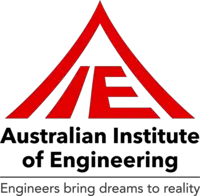
This role has a low level of AI exposure. Core skills such as adaptability, social intelligence, and complex physical tasks remain beyond the capabilities of current AI.
Explore all careersA Hydraulic Mechanic fixes hydraulic machinery, handling repairs, inspections, and maintenance across industries and environments.
Get qualified to work as a Hydraulic Mechanic with a course recognised across Australia. Speak to a training provider to learn more.


















In Australia, a full time Hydraulic Mechanic generally earns $1,680 per week ($87,360 annual salary) before tax. This is a median figure for full-time employees and should be considered a guide only. As you gain more experience you can expect a potentially higher salary than people who are new to the industry.
 Courses.com.au Team
Courses.com.au Team
There has been a slight decrease in the number of people working in this industry over the last five years. There are currently 62,000 people working in this field in Australia and many of them specialise as a Hydraulic Mechanic. Hydraulic Mechanics may find work across all regions of Australia.
Source: Australian Government Labour Market Insights
 Courses.com.au Team
Courses.com.au Team
If you’d like to start a career as a Hydraulic Mechanic, consider enrolling in a Certificate IV in Engineering. You could also specialise your skills with a Certificate IV in Engineering (Fluid Power), a Certificate IV in Engineering (Maintenance) or a Certificate IV in Engineering (Instrumentation). You may also decide to further your skills with a Diploma of Engineering – Technical.
 Courses.com.au Team
Courses.com.au Team
Browse occupations related to Hydraulic Mechanic



If you are considering a career as a hydraulic mechanic, exploring the range of Hydraulic Mechanic courses in Geelong is an excellent starting point. In the Geelong area, you can find various courses tailored to different experience levels, making it ideal for both beginners and those with advanced skills. From the respected Certificate III in Engineering - Mechanical Trade to the more advanced Certificate IV in Engineering (Fluid Power), there's a course to suit your needs.
Two beginner courses that are highly recommended for newcomers include the Professional Certificate of Competency in Hydraulics and Pneumatics. These courses provide foundational knowledge and practical skills, essential for anyone embarking on this rewarding career path. For those already acquainted with the industry, advanced courses such as the Diploma of Engineering - Technical can further elevate your career prospects.
Training providers in Geelong, such as MIC and AIE, are committed to delivering high-quality education in hydraulic mechanics. These organisations not only provide expert instruction but also ensure that their programmes are recognised by industry standards, making sure you are well-prepared for the job market.
Upon completion of the relevant courses, you can pursue a variety of job roles related to hydraulic mechanics in Geelong. Options for graduates include positions such as a Hydraulic Fitter, Plant Mechanic, or even an Automation Engineer. Each of these roles contributes significantly to sectors like manufacturing, mining, and oil and gas, ensuring a diverse range of opportunities.
In addition to hydraulic mechanics, the skills you develop can also be applicable in many engineering-related fields. You might find yourself drawn to associated areas such as Manufacturing Engineering or even Oil and Gas. By expanding your expertise, you can further enhance career paths such as Mechanical Engineer or Research Engineer, providing you with numerous avenues to explore upon completion of your studies.